|

<<
Back
The
first president of Indiana Asbury University, the Rev. Matthew Simpson,
was born in 1811 in Cadiz, Ohio, where Bishop Francis Asbury himself
baptized him while on one of his western journeys. Largely self educated,
young Simpson had taught briefly in a local academy, been admitted
to the practice of medicine in his native state, and been ordained
into the Methodist ministry, preaching in a small church in Pittsburgh.
Deciding to enroll in Allegheny College in 1837, he found himself
the recipient of an honorary A.M. degree from the institution and
was invited to join the faculty rather than the student body!
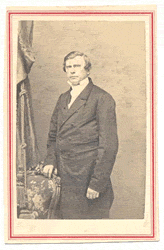 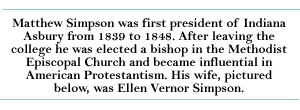
After
two years teaching mathematics and natural science there, he accepted
the Asbury presidency in early 1839. At first he taught everything
except Greek and Latin while holding the chair of mathematics. Transferring
later to the professorship of mental and moral philosophy, he assumed
responsibility for that important subject, along with natural theology
and "Christian evidences," considered the capstone of
the college course and taught by all succeeding presidents for most
of the rest of the century.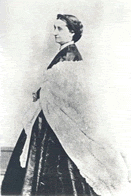

Like many American college presidents of his time, Simpson combined
piety with an innate scholarship despite his lack of formal training.
A good speaker with an ingratiating manner, he pleased the entire
university constituency during his nine-year tenure. Cyrus
Nutt, Asbury's first professor, wrote this in his diary about
President Simpson:
The first president, M. Simpson was a man of singular ability
in many respects. He was exceedingly popular with both the students
and people. He was affable and exceedingly kind in address and conversation,
and seldom failed to make a favorable impression upon everyone with
whom he conversed. Possessed of some wit, and a smattering of all
kinds of learning, and even deeply versed in intellectual science
and moral Philosophy, he appeared to advantage in conversation.
The elements of popularity were abundant in him. He was emphatically
one of the people.... The greatest artlessness and simplicity, with
the appearance of great humility were manifest in his deportment.
His pulpit ministration was another source of his great popularity
with the masses. A ready utterance in a musical and attractive voice,
vividness of fancy, aptness of illustration, and great fervency
and glow of feeling, captivated his audience which were always tremendous,
when it was known that he was going to preach. His sermons were
mostly descriptive. It was seldom that he attempted an argumentative
discourse.
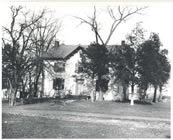 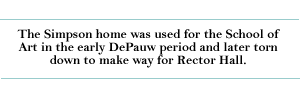
By 1848 the infant university was well established, and President
Simpson, in somewhat declining health and looking for a less strenuous
post, went to Cincinnati to become editor of the Western Christian
Advocate. Four years later he was elected a bishop of the Methodist
Episcopal Church. In that office he soon became an influential national
Protestant leader and confidant of Abraham Lincoln, giving one of
the funeral addresses for the fallen President.
Back
to Top
<<
Back
|







